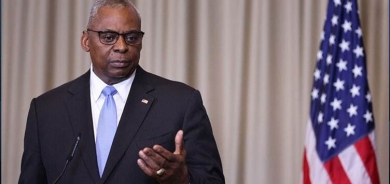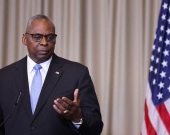The squeeze on Iraq’s Kurds

Maybe that’s why Barzani is grimly unsparing in his description of what the region currently looks like from his capital in Erbil, 14 months into the misnamed “Arab Spring.”
“The more you look at it, the more you see the situation going toward conflict and chaos,” he said Tuesday.
To the south, in Baghdad, Barzani sees Iraqi Prime Minister Nouri al-Maliki “concentrating power,” having driven the leader of Iraq’s Sunni population to seek de facto asylum in Kurdistan. “Iraq right now is facing a crisis,” he told me and The Post’s Jim Hoagland during a visit to Washington. “There may be some people who do not want to call it a crisis, but it is a crisis. This is not the Iraq we struggled for: We are seeing the consolidation of power under one party and one ruler.”
To the southwest, meanwhile, Syria appears to be spiraling into a civil war that imperils a Kurdish minority population of 3 million — while compounding the tensions between the Sunni and Shiite camps in Iraq. “It’s a fight between two forces” in Syria, “the Alawites and the Sunnis, and it’s a fight for survival,” Barzani said. “I’m not optimistic. I don’t see much room for understanding between the opposition and the regime. It is going to go on for some time.”
The Kurds are literally caught in the middle of these twin crises, which have begun to feed on each other. In the past, the Kurds have brokered deals between the Iraqi factions — but their efforts so far to patch the rift between Maliki, a Shiite, and Sunni leader Tariq al-Hashimi have failed. In Syria, the Kurds have turned against President Bashar al-Assad’s regime but are reluctant to embrace the Sunni-dominated opposition until it offers more guarantees of minority rights.
“The Syrian situation has a very direct and negative effect on the situation in Iraq,” Barzani said. Maliki, he added “has his fears” about what the fall of the Assad would mean for the Sunni-Shiite competition in Iraq — fears that may explain his campaign against Sunni leaders.
At the same time, Barzani said, “this Syrian regime was responsible for 80 percent of the bloodshed in Iraq because of terrorism. Maliki has to be responsive to the Iraqis who have not forgotten all of that blood” — most of whom are Sunnis.
Barzani’s presence in Washington, where he is being hosted by Vice President Biden and expects to meet President Obama, is part of his answer to these dilemmas. He is hoping for a more active U.S. policy. “When I last met Obama, I said I hoped withdrawals of American forces, which was natural, would not mean the withdrawal of American interest and American commitment to Iraq,” Barzani said.
“That question is still on the table. In fact, the American position has to be very public and very clear, so that the Iraqi people can see that the United States will not allow and will not support another dictatorship in Iraq.”
In Syria, Barzani said, “the United States should support the aspirations of the Syrian people.” But he added: “It doesn’t look like the United States and Europe have the will to intervene like they have done in Libya.” The Kurds are consequently expecting a prolonged civil war.
Barzani did have one positive reflection: A decade or two ago, he pointed out, Kurdish leaders such as himself would have counted themselves lucky to capture the attention of a stray journalist or congressman while visiting Washington. “Now I am meeting with the vice president and the president. So the Kurdish reality is different.”
Barzani’s movement has indeed gained much in the last decade. Erbil, Barzani’s capital, and much of the self-governing region around it, is booming. The challenge now will be trying to preserve that space between two conflicts — in Iraq and Syria — which may well get worse before they get better.
(Washington Post)














